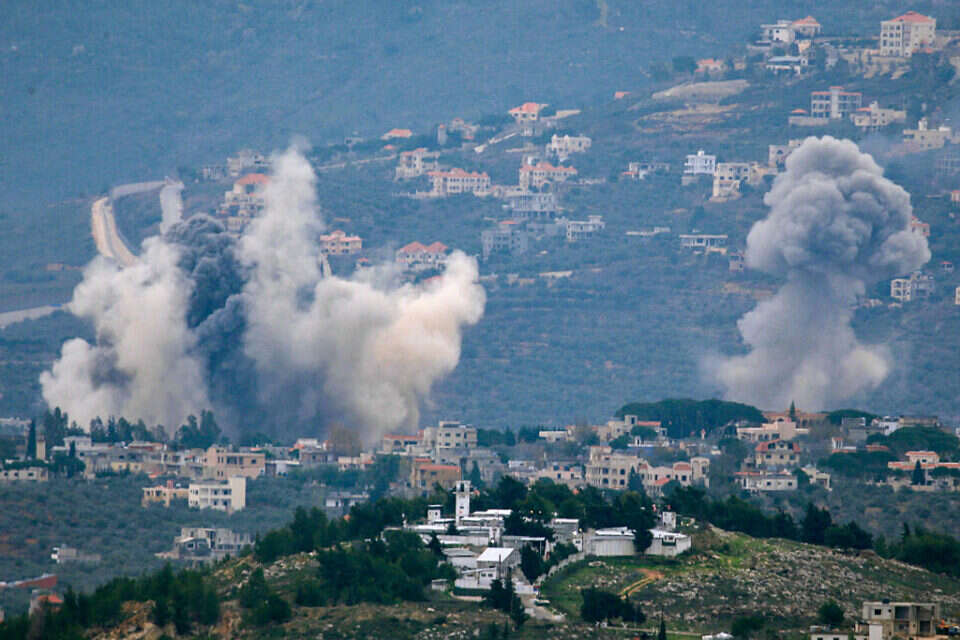Several factors will affect the final outcome on the northern border. One is how Israel ends the campaign in Gaza; The second is the assessment of international sources that Israel is unpredictable and feels pushed into a corner. The international actors are mainly the United States and France and their relations with Iran; And the third is what kind of ceasefire there will be with Hezbollah.
Galant at Northern Command: "We will not allow a return to the situation we were in until October 6" \\ Photo: Elad Malka
The first option is a ceasefire that is nothing more than understandings that determine the state of preparation that has emerged over the past three months. According to well-known commentators, because of the blows it suffered, Hezbollah has distanced itself from the border, but it still has the power to fire its cornets at the homes of the border communities from Metula, through Manara and Avivim to Hanita. In other words, some kind of security zone will be created without a physical presence of Israel, and the closure may be in payment of some concession by the Americans to Iran. A kind of recognition of Iranian hegemony.
The second possibility is that the same security zone, a buffer zone between the enemies, will be determined through an agreement with some international validity, such as UN Resolution 1701. On this issue of Lebanon, Israel has an advantage. Beyond all the internal political skirmishes, there is a very broad consensus that will enable the political and military echelons to embark on an all-out war in order to remove the threat from the northern communities and allow the residents to return home. It's a rug from Yair Lapid to Itamar Ben-Gvir. In this case, if the Lebanese issue is closed with understandings like Ehud Barak's operations in the 90s, part of the left may turn out to be more hawkish in its criticism of the government.
Chief of Staff Halevy on the northern border, photo: IDF Spokesperson
At present, after two months of fighting on the ground in Gaza, the IDF is imbued with a sense of self-confidence. He was rescued from the legacy of Kochavi, Toledano and Haliwa, and if required to enter Lebanon he would do so without hesitation. The psychological barriers have been broken, not to mention that the Air Force will be able to use its full power. It seems that Israel does not have the option of a limited operation aimed at removing Hezbollah's cornets to a safe distance, because such an operation would free Hezbollah from the limitations it assumes in the bloody game on the northern border, and it will see itself free to cover the Israeli home front with missiles. So a ground incursion into Lebanon ("maneuver," in the new dictionary) is actually an all-out war. The government's room for maneuver between the extremes is what is happening now.
According to the newspaper L'Orient Today, once the hostilities in Gaza end, the situation in southern Lebanon will return to the status quo that existed between 2006 and October 7 this year, Amal leader Nabih Berri is quoted as saying.
According to the Lebanese, Israel is signaling that it is willing to settle for a buffer zone ten kilometers from the border. Israel is not willing to accept a return to the pre-war status quo. "We are not returning to the way things were before," the chief of staff said during a tour of the northern border a few days ago. "Regardless of the outcome, a lot of things will happen here in the coming year."
Israel must not convey distress as if it is rushing to exonerate Gaza. It will end with the Gaza Strip, and then, according to the way the fighting ends, in the north it will prepare for a state of peace or war. If the Americans want to prevent a war in Lebanon in the coming year, they will have to make great efforts so that the ceasefire meets Israel's basic interests, namely the security of the northern settlements. Ongoing negotiations and ambiguity mean war down the road.
Wrong? We'll fix it! If you find a mistake in the article, please share with us

